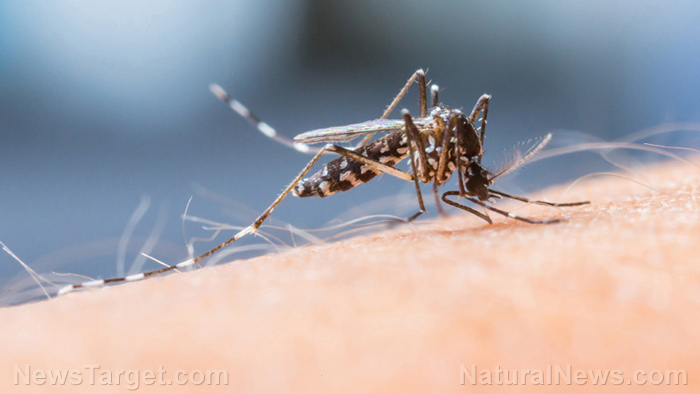
According to CDC Director Robert Redfield, wearing a cloth face covering is much more effective at preventing Wuhan coronavirus (COVID-19) infection than getting injected with vaccine chemicals. This is a deviation from the CDC's longtime position that vaccines are the best thing since sliced bread – so incredible, we were told, that mothers should stop breastfeeding their babies in order to boost the "efficacy" of childhood vaccination.
Redfield made these comments in opposition to vaccination during a recent Senate Appropriations Committee hearing about the federal government's Wuhan coronavirus (COVID-19) response, part of which includes a potential new "stimulus" bill.
"We're going to continue to give Congress and the nation the best public health advice," Redfield further stated. "We're not going to let political influence try to modulate that."
As to when a Wuhan coronavirus (COVID-19) vaccine will realistically become available, Redfield reiterated President Trump's claim that one will hit the market by November, but in "very limited supply."
"If you're asking me when it'll be available to the general American public, probably Q2 or Q3 2021," he added, suggesting that full-scale mass vaccination for the Wuhan coronavirus (COVID-19) is still a ways off.
Cloth face coverings "most powerful public health tool we have," Redfield insists
Though the president has demonstrated reluctance in covering his nose and mouth with fabric, Redfield insists that wearing a face mask is "the most powerful public health tool we have," even superseding immune-boosting nutrients like green tea, zinc and quercetin.
"I appeal to all Americans to embrace these face coverings," Redfield implored. "We have clear scientific evidence they work. This face mask is more guaranteed to protect me against COVID-19 than when I take a COVID vaccine."
Keep in mind that the CDC said the exact opposite earlier this year, emphasizing that face masks are not effective enough to warrant telling everyone in the general public to wear one while shopping or exercising at the gym.
Redfield went on to further suggest that face masks are "guaranteed" to protect people against the Wuhan coronavirus (COVID-19), while no such guarantee exists for Wuhan coronavirus (COVID-19) vaccines, which are still undergoing human clinical trials.
While one of the "warp speed" vaccines, AstraZeneca's, was originally slated to be released as early as September, a "serious adverse reaction" that occurred during a late-stage trial brought it to a halt and pushed the timeline back a bit.
If all goes as planned, at least some Wuhan coronavirus (COVID-19) vaccines from Operation Warp Speed will become available before the November election. The first people to receive it will be those in the vulnerable category, meaning the elderly and immunocompromised.
According to the CDC, only about 121 people under the age of 21 living in America tested positive for the Wuhan coronavirus (COVID-19) between February and August. Of these, about 75 percent were either Hispanic, black or Native American/Alaskan, suggesting that the risk of infection among otherwise healthy young people is next to nil.
"Reporting covid cases is like talking about how many birds migrated this year," joked one Zero Hedge commenter, adding that it is "beyond useless."
"If people are afraid, they can stay home," wrote another. "They don't get to impose masks on others so they can feel safe. Their rights end where my body begins."
If you liked reading this story, you can find more like it at Pandemic.news.
Sources for this article include:
Please contact us for more information.





















